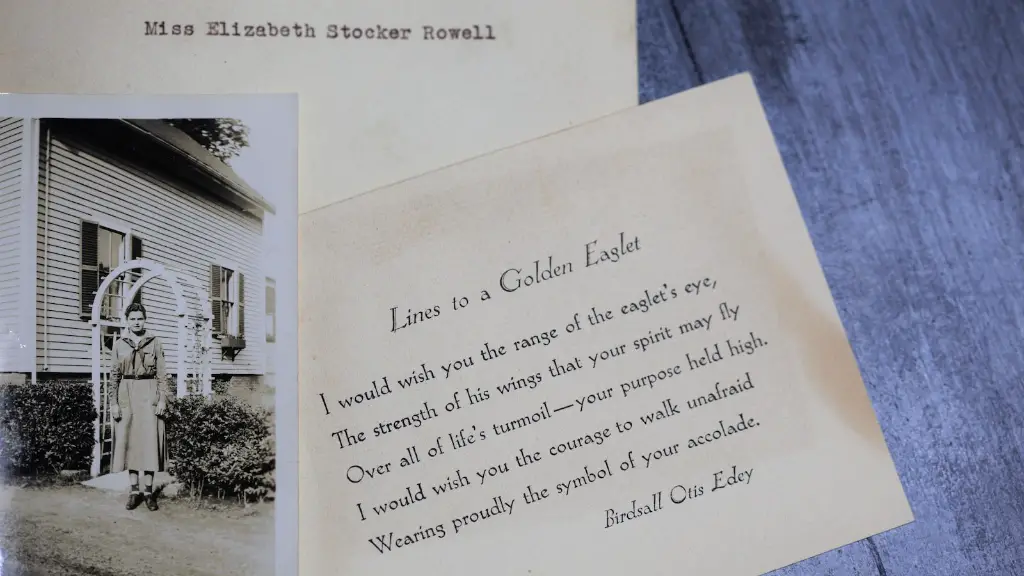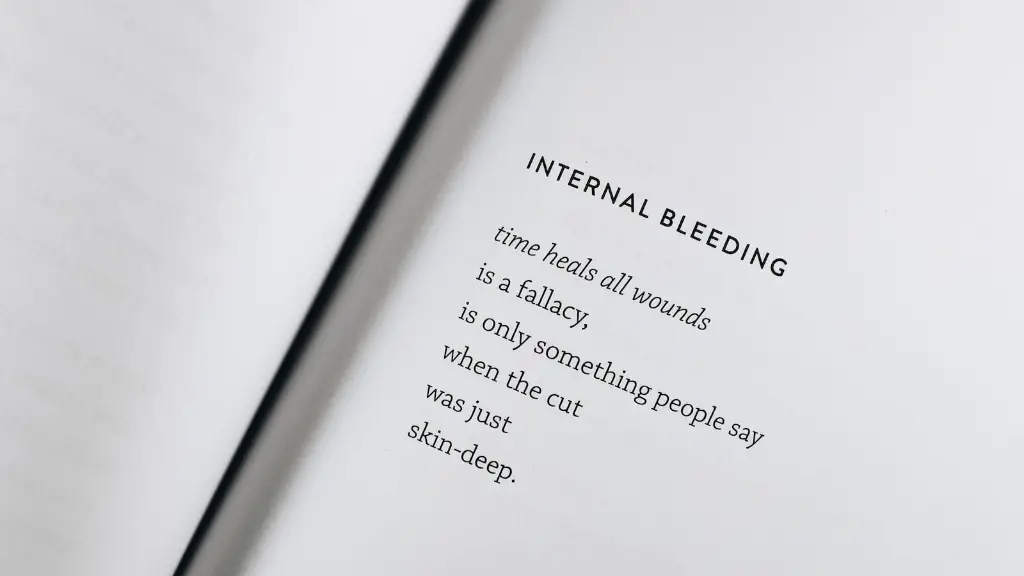Poetry books take many forms, from short collections to hefty tomes with hundreds of pages. But how many pages are poetry books on average?
Types of Poetry Books
What makes this question difficult to answer is the sheer variety of poetry books. Some poetry books are slim, containing just a few poems, while others boast large collections of works by the same author. There are collections of traditional poems, such as Robert Frost’s The Complete Poems of Robert Frost, as well as books of new and original poems like Half Life by Olive Senior.
Other poetry books, such as The Waste Land by T.S. Eliot, are longer works or ‘epics’, told through verse and written in hundreds of lines. These longer works are often referred to as ‘long poems’ or ‘narrative poems’, such as The Iliad, Beowulf or The Odyssey. Finally, there are anthologies, which compile hundreds of poems from different authors, such as the Norton Anthology of Poetry.
Average Poetry Book Length
According to data from the publishing industry, the average poetry book length is 118 pages. This number depends on the type of poetry book, though. Short collections are generally much shorter than large anthologies, for example. And poetry books come in all shapes and sizes — from note cards with a single poem on them to coffee table books with hundreds of pages.
The average length of a poetry book is important to know as it can help publishers and authors ensure that their works fit within a certain range and expect the right kind of readership. This can help them better market and advertise their books.
Tips for Lengthy Poetry Books
The challenge when compiling a larger poetry book is to make sure the work is engaging and interesting enough to keep readers’ attention. To achieve this, experts recommend that authors use each poem to advance their storyline, rather than adding poems simply because they are good. They suggest that authors give each poem a specific purpose in the story so that readers understand how each piece works together to create a larger narrative.
Experts also advise authors to break up longer books with shorter poems and to experiment with formats. Adding illustrations, for example, can be a great way to keep readers engaged and make a book look more aesthetically pleasing.
Licensing Poetry Books
Another important factor for authors to consider is licensing. Most authors of poetry books are highly protective of their works and may be reluctant to let them be published for fear of piracy — even if taking the necessary legal steps can help to protect them.
Before a publisher can license a poetry book, they must understand the copyright laws and the process for obtaining permission to use someone else’s work. It’s also important to note that most copyright laws place restrictions on the number of copies that can be sold — so it’s important to understand these laws before publishing a book.
Marketing Poetry Books
Once authors have license their books, it’s time to start marketing them. This is where the average length of poetry books becomes important — it helps authors figure out the best way to market their books. For instance, authors may choose to focus on bookstores or online retailers that cater to specific length books.
Authors should also consider creating an online presence — setting up a website or even creating a social media profile. These platforms can be great for connecting with potential readers and providing updates on projects.
Using Poetry in Schools
In addition to marketing their poetry books, authors should consider teaching in schools. Schools are often looking for engaging literature to use in their classrooms, and poems can be a great way to introduce students to literature in an accessible way.
For authors looking to use their books in the classroom, it’s important to make sure the books are age-appropriate and have educational value. It’s also important to make sure the content is appropriate for the education system in their target market — for instance, a book aimed at U.S. schools should focus on literature from American authors.
Assessing a Poetry Book’s Worth
Finally, authors need to assess the worth of their book. The length of the book is important, but so is the quality of the content. Even a lengthy book won’t be successful if it doesn’t contain engaging and meaningful poetry, so authors need to make sure their words speak to readers.
It is important for authors to remember that not all poetry books are created equal — they need to make sure they create something that will stand out in the literary landscape and be enjoyable to read.
Understanding the Audience
Authors also need to make sure they understand the audience they are catering to. They should research the market to identify their target readers and write specifically to them. What types of poetry do they typically read? What topics do they care about? Understanding the audience can help authors craft books that are truly unique and powerful.
In addition to understanding the audience, authors must also consider pricing. Knowing the average length of poetry books in the market can help authors determine the best price point for their work.
Picking the Right Publisher
Finally, authors must select the right publisher for their work. Not all publishers are the same, and it’s important that authors find one that can offer them the best deals and most support. Authors should also make sure the publisher has experience publishing poetry books — as this will ensure they know how to promote and market the book.
Finding a publisher that understands the author’s vision and can help them accomplish their goals can be key to the success of their book. Authors should do their research to make sure they find the right partner and get their book into the hands of readers.




